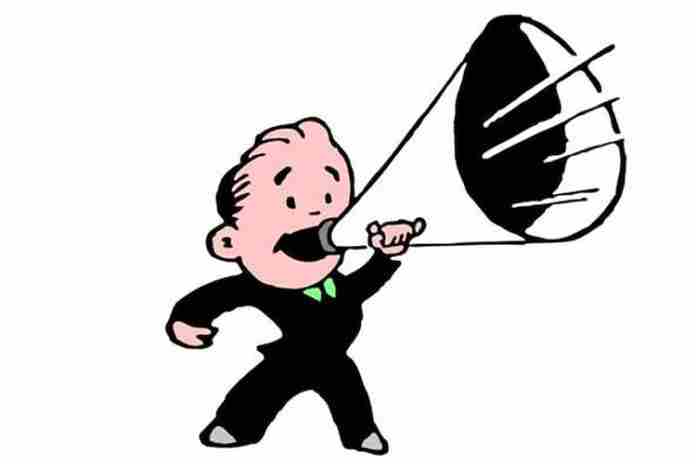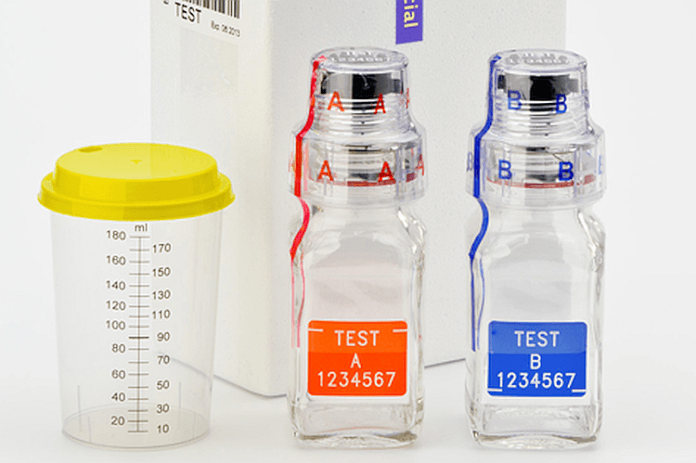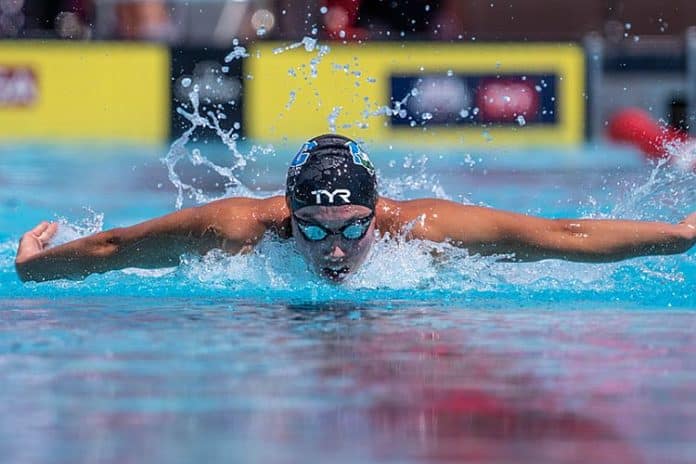/This is an essay by Professor Helmut Digel of Germany, a handball player in his youth, but well known as the President of the DLV, the German track & field federation, from 1993-2001 and a member of the IAAF (now World Athletics) Council from 1995 to 2015. As a professor of sport sociology, he taught at universities in Frankfurt, Tubingen and Darmstadt between 1978 and 2010. He now edits the online magazine Sport Nach Gedacht. His writing offers a sobering perspective, and his views are, of course, his alone./
Once again, it is “showmaster” and “rhetoric artist” Sebastian Coe – who is also of the English House of Lords – who, as President of World Athletics, speaks out with a spectacular message to secure the attention of the sporting world public with a populist action, in which he can be sure of the applause of some star athletes and their representatives.
In a press release in the second week of April 2024, World Athletics and its President Coe announced that the World Olympic Athletics Federation will introduce prize money as early as the 2024 Paris Olympics and that the winners of an Olympic gold medal will be rewarded with $50,000. At the same time, a commitment is made that the prize money will be extended on a staggered level to the winners of the Olympic silver and bronze medals at the 2028 Games in Los Angeles. In Paris, a gold medal will be awarded in 48 athletics events, bringing the total prize money to $2.4 million. The money is provided from the funds that World Athletics receives from the IOC every four years. For Coe, this underscores World Athletics’ commitment to “empowering athletes and recognizing the critical role they have in the success of the Olympic Games.”
As was hardly to be expected, Coe initiated his latest media coup without consulting the IOC and, quite obviously, without any solidarity with the other summer Olympic federations. “Solidarity” once again seems to be a foreign word for him. Rather, he is following the tradition of his predecessors in office and inflicting great damage on modern Olympism and endangering the further development of the Olympic Games with his solo effort. Was it the delusional IAAF presidents Primo Nebiolo (ITA) and Lamine Diack (SEN), who repeatedly cultivated a special affront to all other Olympic federations during their term of office and announced every four years that the Olympic Games actually only begin with the first competition of athletics, the Queen of the Olympic Games, and have never been willing to streamline the athletics program at the Games, to reduce the number of gold medals to be awarded and to give other and new Olympic disciplines more space to present their sports, the current World President of Athletics is following this unique selling point strategy by calling for even more athletics disciplines to be included in the Olympic programme and, like his predecessors, by withdrawing from any solidarity within the Olympic Movement. This also includes the hypocrisy of World Athletics towards the participation of neutral athletes in the Olympic Games and the unilateral action in the fight against doping, although athletics is the sport that has the most doping cases in the world.
The IOC has so far only reacted to the introduction of prize money at the Olympic Games by World Athletics with a very brief statement. It said that it distributes 90% of its income to the National Olympic Committees and to the International Sports Federations and that it is up to them to decide how the federations use the money. The IOC would distribute $4.2 million (€3.9 million) a day to support athletes and sports organizations around the world.
It now remains to be seen what further reactions the IOC will have. However, it can already be argued that the IOC has made a big mistake for a long time by transferring millions of dollars from the proceeds of the very successful sale of marketing and television licensing rights to the IOC’s stakeholders every four years, without tying the allocation of these funds to certain verifiable criteria of use.
It will also be interesting to see the reactions of the umbrella organisations of the international sports federations and the other international summer Olympic federations, which will now be confronted with the problem at the Paris Games that Olympic champions in athletics will receive 50,000 US $ in prize money for winning a gold medal. All other Olympic champions, on the other hand, have to be content with the honor of winning an Olympic gold medal.
For someone who knows the character of the president of World Athletics and his personality, his populist action is hardly surprising. In many respects, however, this action is completely unacceptable and must be seen as a threat to the future of the modern Olympic Games, because in this way Coe radically calls into question the unique selling point that has distinguished the more than 100-year history of the modern Olympic Games. He does this with the support of a council dominated by “yes-men” and “yes-women”, with the support of a secretary-general who exercises his office at Coe’s mercy, and with the support of ethics and compliance committees, whose members can be sure of the president’s friendship.
If Coe were to abide by the Olympic Charter to which he and World Athletics have committed himself, going it alone would be out of the question in every respect. For more than 100 years, the Olympic Games were for good reason “ad-free games” and, from a commercial point of view, deliberately limited games. During the Games themselves, in the Olympic sports arenas, commercial advertising, e.g. by means of advertising boards, is not allowed and advertising is only permitted to an extremely limited extent on the athletes’ clothing. The participation of athletes is subject to clear ethical guidelines and the payment of prize money is not provided for in the Olympic Charter. The Olympic Games are by no means a mere series of world championships of different sports. Their mandate is clearly defined in the Olympic Charter and since the IOC session in Beijing in 2022, all IOC members have spoken out in favor of a “communiter” and thus an extension of the Olympic motto in the Olympic Charter. The principle of solidarity thus applies to all participants in the Olympic Games.
The appropriate way to introduce prize money at the Olympic Games would therefore have been for World Athletics to submit its concerns to the IOC Executive at an early stage and, above all, to consult all other international federations. However, this path was not disputed by Coe for obvious reasons, as it was contrary to his own interests and he could not be sure of IOC support and the support of his IF colleagues. Rather, Coe seeks the applause of successful athletes such as Colin Jackson (GBR) or Robert Hartung (GER), who have already earned a lot of money with their sporting successes and only represent their own selfish interests with their support. Track and field athletes who will win a gold medal at the Paris Olympics can now count on $50,000 in prize money, although many of them do not need this additional income because of their other income. Most track and field athletes who win a gold medal have been so-called “sports millionaires” for a long time, who have sufficient advertising revenues, sponsorship contracts, entry fees and prize money at athletics meetings and world championships. Coe’s altruistic reasoning is therefore inaccurate in every respect, because it is above all those athletes who do not reach the finals of the Olympic competitions who are most likely to need financial support. With Coe’s initiative, rich athletes will become even richer and poor athletes even poorer, and the already far too wide gap between rich and poor Olympic sports will be widened. Because the promotion of the rich is at the expense of the promotion of all those who urgently need it.
The economic principle also applies to the revenues generated by the IOC that each euro can only be spent once. If all Olympic sports federations were to follow the example of Word Athletics and use the financial resources made available by the IOC to finance bonuses for their medal winners in the competitions of their sport, the question would arise as to which tasks can no longer be carried out by the international federations in the future. One thing is already certain. The unilateral action of World Athletics will lead to a new financial desire from athletes in all Olympic sports. After all, one question is legitimate and obvious: is it fair if the Olympic champions in one Olympic sport receive $50,000 for their gold medals, but the Olympic champions in all other Olympic sports are left empty-handed?
The objection of Coe’s compatriot, Britain’s five-time rowing gold medalist Steve Redgrave, to his grip on the Olympics is therefore particularly noteworthy. He points out that this attack goes against the “ethos of the Games” and that the Olympics are characterized by the fact that all athletes are at the same level of a platform and there is no “top” and “bottom.” Thus, a very special ideal of equality comes into play in the games.
Coe sees himself as a member of a generation that still walked to the honour of their own country for a 75 pence meal voucher and a second-class train ticket. He emphasizes this fact in order to demonstrate his competence for the changes that have been observed in modern high-performance sport in recent decades.
We agree with him that we live on a completely different planet today than we did when he competed. However, the conclusions he draws from it are in contrast to all the necessities and challenges that we face on our planet these days. In the face of an impending climate catastrophe, in the face of dangerous military conflicts and in the face of a global economic crisis, modesty and renunciation rather than the propagation of growth ideological maxims are the order of the day. A radical reduction of the CO2 emissions caused by world sport is demanded and an expansion of the existing competition operations is out of the question. Rather, a reduction in the number of international competition structures must be demanded. Coe’s announcement to extend or increase the competition season and the number of competitions is just too fatal. The gap between rich and poor must be reduced in the long term for the benefit of the disadvantaged of this world and must not be increased by the promotion of an insatiable greed for money.
With World Athletics’ decision to use remuneration from the IOC’s revenues to fund prize money, Coe has dangerously opened the door to new forms of commercialization of the Olympic Games. The demand for the release of “advertising on men” or “advertising on women” and advertising in the Olympic arenas could pose an even more serious threat. For those who still consider modern Olympism to be important and who emphatically express an interest in Frenchman Pierre de Coubertin‘s idea of peace even these days – despite all the dangers – the hope remains that the IOC will find ways to credibly oppose a creeping commercialization of the Games. The hope must also be combined with the wish that the international Olympic federations will be aware of their commitment to solidarity with the Olympic Charter and will also be prepared to resist self-destructive commercialization.
¶
Comments are welcome here.
[≡The Sports Examiner encourages expressions of opinion – we really do – but preferably based on facts. Send comments to [email protected]. We do not guarantee publication of any comment, but all comments submitted will be considered and your submission implies your agreement to publication (and light editing if needed to meet our grammatical and punctuation standards) at our sole discretion. Please include your name and hometown on any comment submitted for publication.≡]
¶
You can receive our exclusive TSX Report by e-mail by clicking here. You can also refer a friend by clicking here, and can donate here to keep this site going.
For our 920-event International Sports Calendar for 2024 and beyond, by date and by sport, click here!


























